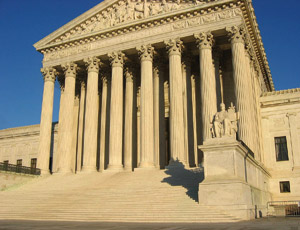As the U.S. Supreme Court prepares to begin its fall term on Oct. 4, it has no construction-specific cases on the docket so far. However, it is slated to take up immigration and labor cases that could affect construction and other industries.

Oral arguments are scheduled for Dec. 8 on Chamber of Commerce v. Whiting, a challenge to a 2007 Arizona law requiring companies to use the federal E-Verify system to ensure employees are legal U.S. residents. The case centers on whether the federal Immigration Reform and Control Act preempts the state law. Maurice Baskin, Associated Builders and Contractors’ general counsel, says having a patchwork of state mandates would lead to difficulties for multistate employers.
Mike Kennedy, the Associated General Contractors’ general counsel, says Arizona’s law is problematic because contractors found to have hired undocumented workers can lose their business licenses. “It represents a new and different way of using state licensing laws that—quite apart from the immigration issue—is troubling,” he says.
Oral arguments are scheduled for Oct. 13 on Kasten v. Saint-Gobain Performance Plastics Corp. The case concerns a worker who contends he was illegally fired for complaining to supervisors that time clocks in work areas violated the Fair Labor Standards Act. Baskin says the case is significant because it looks at whether oral complaints—as opposed to written complaints—are enough to make a claim of illegal employer retaliation. “This case could expand the definition of retaliation, which could lead to more lawsuits against employers,” he says.
The court also has been asked to hear a potentially significant water-quality case, Friends of the Everglades v. South Florida Water Management District, says Patti Goldman, Earthjustice vice president of litigation. The case deals with whether pumping water into Florida’s Lake Okeechobee from other bodies of water requires a Clean Water Act permit.


Post a comment to this article
Report Abusive Comment